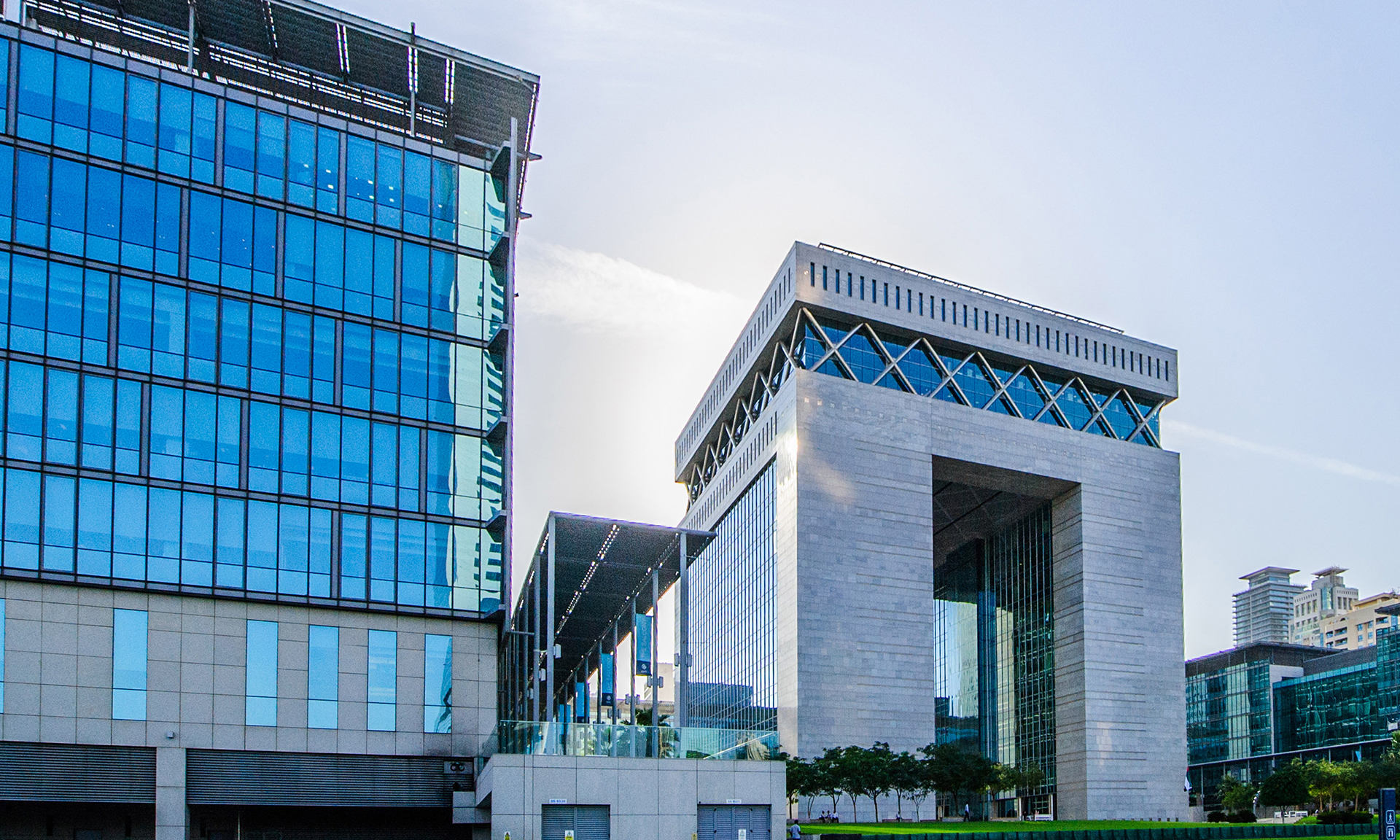
- NEWSLETTER,U.A.E
- September 20, 2022
The UAE, following in other countries’ footsteps is increasingly focussing on indirect tax including VAT. VAT is a transaction based consumption tax that needs continuous monitoring for effective and timely compliance. Tax assessments, audits and enforcement measures are also becoming increasingly sophisticated, with a focus on common errors and industry specific issues.
The UAE, for the first time, introduced Value Added Tax (VAT) on 1 January 2018.
Frequent changes in tax policies and tax laws have become the norms of the day and are often seen sending confusing signals to the hugely stressed internal tax teams. Businesses are anxious about how these new indirect tax laws would affect them and how they could remain compliant ahead of time.
At IMC, our seasoned tax professionals are pretty much aware of this rapidly evolving VAT norms and regulatory environment in UAE and can design tailor-made solutions for you to address VAT issues timely and satisfactorily.
How IMC VAT Services Can Help You Run Your UAE Business More Effectively and Smoothly
Transaction mapping exercise
As VAT is a Transaction based tax, the transaction mapping exercises will help businesses document each relevant transaction type for the purpose of validating the classification and evidence requirements. This can be used to support systems automation for VAT determination and reporting purposes.
VAT diagnostic review
By conducting VAT Diagnostic Reviews, our team of VAT experts Review to both interview analyze your supply chain (goods and services) and help you understand better your VAT risks and opportunities.
VAT Documentation review
Periodic Review of VAT documentation retained for each categories of supply that helps you identify risk and recommend action. We also review documents from input VAT deductibility, which is critical for your business.
VAT refund request review
Review of the VAT refund request template for the tax period and corresponding VAT return in order to identify risks and suggest corrective actions before submission of the VAT refund request.
VAT return review
We periodically carry out a detailed review of your VAT return and simultaneously provide you with knowledge gained from broader compliance activities and industry specific risk areas to highlight key issues and recommend actions.
Remediation assistance
We will work as partners to develop a strategic approach to address any remediation that you would need from time to time.
Why choose IMC?
Integrated team of high caliber tax professionals
Our VAT services team is comprised of highly qualified and dedicated tax professionals with proven experience across different sectors.
Deep and diverse Industry experience
Our team has hands-on experience across diverse sectors and has successfully assisted clients on several complex tax issues

- NEWSLETTER, GLOBAL
- September 13, 2022
Introduction
As today’s global village gets smaller with every passing day, many forward-looking companies are increasingly entering into mergers and acquisitions (M&A) and overseas collaborations for reaping the benefits of operating and trading in multiple countries and promoting innovation, development and market outreach. These companies are also sending and engaging their HR and legal resources to foreign locations to facilitate the effectiveness of such business expansion and ensure continued organizational sustenance. Going global, however, is posing challenges due to the scarcity of talents and necessary skill sets in many locations and industries.
Today most companies expanding overseas are managing international functions in the same way as they would in their home countries. However, what works for businesses and employees in one country may not work in another in the face of constantly changing markets and regulatory requirements in terms of employee work authorization, benefits and taxation. For enduring business success in this new era of globalization, effectively managing and infusing a sense of belongingness among the international talent pools through a well-crafted global mobility strategy is seen as indispensable.
Global Mobility- What is it?
Global mobility is an organisational function enabling employees to seamlessly move from one location to another and achieve success both in their professional and personal lives. This function primarily deals with logistical issues of relocation, legal and tax compliance, support for family and dependents, technology and fixing employee settlement. As this function evolves, it includes more strategic aspects of value creation, talent development and workforce satisfaction. HR functions usually run and manage global mobility programs in consultation with a professional and well-reputed service provider of global mobility solutions.
Mobile employees are company workers who are transferred to another country either permanently or on long-term or short-term assignments as well as those who travel to other countries quite often.
What are some key challenges faced by the Global Mobility functions?
No doubt our world is becoming smaller due to increased connectivity, however, it is also becoming more complicated due to higher regulatory intervention and geopolitical uncertainties. The key challenges faced by the global mobility functions include the following.
Immigration Legislation
Immigration legislations are subject to frequent changes and each country has its own set of immigration policies that vary in complexity. As immigration policies constantly evolve depending on social, political and economic situations, it makes immigration a tough global mobility challenge for organizations.
Tax Law and Employment Requirements
Like immigration legislation, tax and social security regulations are also becoming incredibly complex. Tax policies not only vary from country to country but may also be different in different jurisdictions in the same country adding more complications and challenges for global mobility.
To ensure that business is following the rules and regulations when it comes to taxes, one should seek professional advice about the payroll-related aspects of global mobility by engaging an expert global payroll solutions provider to address withholding employee taxes needed by the home and host countries and withholding for social security and other benefits required by the home and host countries.
Inadequate Skill Sets
Global mobility professionals running global mobility programs often lack data analytics and technology skills which are critical in making the right strategies and recommendations
Relocation Logistics
The logistics of relocating employees and sometimes their families, to different parts of the world, can be extremely tricky and challenging considering travel assistance, immigration/visa services, educational assistance for children, language training, international banking, airport transfers, housing and many more.
Talent Identification and Employee Compensation
Devising a way to match talent to global assignments and opportunities can be an uphill task for global mobility functions as unconventional elements like a gig and remote working are finding their way. Deciding on employee compensation also becomes challenging in such situations considering employee satisfaction and the financial burden on the organisation.
How can Global Mobility functions overcome challanges?
First, businesses need to design a thorough global mobility strategy with flexible and cost-effective policies for seamlessly transitioning employees travelling or living in foreign countries to address global mobility challenges successfully. The strategy must provide a well-documented system, eliminating outdated policies and contradictory procedures with comprehensive guidance for cross-border employee mobilization which must be in perfect alignment with the organization’s business plan, vision, mission and objectives.
Second, businesses must effectively address the logistical challenges by developing robust supply Chain management.
Third, multiple payrolls must be eliminated and a global payroll system with an appropriate interface to be put in place for effective management of payroll.
Fourth, a travel Tracking system should be implemented for timely tracking of business travel and ensuring accurate visibility of the mobile workforce.
Fifth, an HR tracking system must be in place to quickly know employee skills, educational background and linguistic capabilities.
Last but not the least, implementing a skill development program for global mobility professionals including mobility compliance risks, talent management, finance, vendor Management and interpersonal skills.
How can Global Mobility functions move beyond compliance and add value to an organisation?
Though compliance continues to be one of the key priorities in global mobility ensuring timely tax reporting & withholding and appropriate work authorizations and renewals, the priorities are gradually shifting to that of value creation. Mobility professionals are now adding value to an organisation in several ways.
Flexible policies are helping organisations to deploy a global workforce quickly and retain competitive advantage by avoiding wastage of time and talents to achieve increased revenue.
Value is delivered when mobility functions proactively respond and advise the future mobility needs of the organisation.
Identifying issues and mitigating risks early enough with minimal implication on cost and resources.
Increased investment in technology and automation helps improve operational efficiency and maximise the productivity of mobility processes resulting in cost advantage.
Outsourcing mobility programmes to experts in legal and relocation services helps eliminate penalties and delays in visa processing reducing costs.
THE TAKEAWAY
The main pillar of global mobility is an impeccable strategy and a committed team to implement that strategy. To smoothly deploy employees in international locations and effectively manage immigration and payroll issues, businesses are recommended to engage a global mobility partner.
The challenges associated with global mobility couldn’t deter businesses from expanding their operations internationally, instead enhancing their growth prospects by identifying the hurdles and deploying professionally qualified global EOR services with proven experience. Being an HR service, an Employer of Record keeps a business compliant with local laws and can onboard and manage staff on an organization’s behalf.

- Newsletter, Singapore
- September 13, 2022
The ‘Google for Singapore’ event was celebrated for the first time in Singapore on 23 August, Tuesday marking the 15th anniversary of this company. A large number of industry and government leaders, including Singapore’s Deputy Prime Minister and Minister for Finance Lawrence Wong (DPM Wong), attended this memorable event.
In Google’s 15th anniversary event, the search engine giant deliberated its plan towards empowering Singaporeans to further elevate the city state’s outstanding status as a regional and global technology innovation hub encompassing four principal pillars including investments, online safety, economic opportunities and sustainability.
DPM Wong, attending this event said, “In fact, Singapore will enhance its value as a hub for trade, technology and talent flow even as economic uncertainties prevail amid an increasingly divisive world.”
The Deputy Prime Minister, at this event, also adored Google saying that the tech giant has remained Singapore’s strong and steadfast partner since it set up its footprint in this country 15 years ago.
Drawing particular reference to the Covid 19 pandemic over the last two and half years, DPM Wong noted the praiseworthy work Google has been doing in close association with the Singapore government to help residents bridge the digital gap between studying and working from home and get connected.
DPM Wong forecasted trade and investments 15 years down the line and noted that friendship between nations will dictate and matter more in the present circumstances than in the past trade and investments.
“Increasingly, there is a new logic at work: Let us be friends first before we do business,” he highlighted, narrating the world at a turning point.
“Geo-politics is increasingly driving trade and investments. And if this trend were to continue, and it looks likely, then we are heading to a more bifurcated and decoupled world,” he said.
200 event attendees at Google’s Mapletree Business City II office on Pasir Panjang road were also reminded by DPM Wong that such challenges are not new to the Singaporeans who have dealt with such challenges since the country’s independence in 1965.
He also appraised the event attendees on investment and trade opportunities in Southeast Asia and Singapore, leading this continent in such matters.
“The digital economy in South-east Asia is only just getting started – fuelled by a huge, untapped but fast-growing digital consumer market,” he emphasized.
In light of increasing Asian wealth, a rising number of high net-worth families are consolidating their wealth in the city-state through formal structures and incorporating a Single Family Office in Singapore. This is how enhanced value creation is happening in Singapore as a trade and investment hub and as echoed by DPM Wong.
The Deputy PM also affirmed, “For its part, the Singapore Government will do everything it can to enhance its position as a hub for trade, technology and talent flow.”
Singapore is also striving hard to strike digital economy agreements with other countries to enhance trusted cross-border data flow to bring value through digital trade and innovation.
Singapore has recently entered into a Digital Economy Agreement with the UK. It also has similar pacts with Australia, Chile, New Zealand and South Korea. This new kind of trade agreement to boost digital trade is expected to attract more FDI through company formation in Singapore.
DPM Wong also stressed the importance of digitization in driving industrial growth and adding value as a tech hub. He added, “Of course, to be an effective hub, we also have to work with companies like Google to strengthen our tech ecosystem.”
Google officially launched its 3rd data centre in Singapore on Tuesday, Aug 23 and raised the company’s total investment in data and cloud facilities in the country to USD 850 million equivalent to SGD1.19 billion. Around 2.5 billion South Asian people will be able to access the services of this data centre.
Earlier an Oxford Economics report released by Google revealed that the company’s data centres in Singapore have contributed significantly to the country’s economy and generated around USD 216 million worth of economic activity in 2020.
Google Cloud and the Smart Nation and Digital Government Group (SNDGG) have secured a partnership deal to co-create innovative AI solutions for improving the work and lives of Singaporeans. The National AI Office of SNDGG has, for the first time, plans to enter into a public-private AI partnership with a renowned global technology company.
Google is also in the process of making a partnership with the IMDA and the Media Literacy Council for supporting the Digital for Life movement. This partnership will also ensure that 50,000 parents and children are trained on online safety. Be Internet Awesome (BIA) is a curriculum designed by the American tech giant to train primary school students which in turn will enhance the value of Singapore as a talent hub.

- GCC,NEWSLETTER
- September 13, 2022
The Gulf Cooperation Council (GCC) and the UK launched negotiations on Monday, 22nd August 2022 for a free-trade pact. The initial round of talks on the two-way trade agreement continued till Thursday, August 25.
The opening session of the first stage of the free trade talks was addressed by Dr Nayef Al Hajraf, Secretary-General of GCC who sounded hopeful about the negotiations leading to fruition. The FTA would open new horizons for joint investment, according to a press release by the GCC Secretariat noted.
Dr Al Hajraf also emphasised the importance of friendly relations between the GCC nations and the UK in serving and fulfilling the common interests of both sides.
Leaders of the GCC member states believe that these negotiations would deepen the strategic partnership in all economic, trade and investment fields, highlighted Al Hajraf.
The deal is expected to result in increased trade between the GCC and UK by 16% minimum, enhanced foreign direct investments between the two regions and complete elimination of several tariffs and non-tariff barriers. Tax incentives enjoyed by businesses in the gulf free zones can be a real stimulus and lure UK investors for setting up a company in Dubai free zone.
The food and agriculture sector would be the biggest beneficiary as the majority of GCC import tariffs, currently pegged between 5% and 25%, are expected to be either reduced or removed allowing the imported food-dependent GCC states to support their food security more economically.
Simon Penney, appointed as Her Majesty’s Trade Commissioner (HTMC) for the Middle East and Her Majesty’s Consul General (HMCG) to Dubai, expressed huge optimism about the outcome of the GCC UK FTA sometime back.
He talked about the unfailing political will and conviction of leaders from both sides including noted government and business leaders of all seven countries to present the respective citizens with a comprehensive UK-GCC free trade agreement sooner than later.
He also mentioned the UK GCC Joint Trade and Investment Review which helped both sides identify future opportunities and priorities leading to Round 1 of formal FTA negotiations.
He referred to Brexit and claimed the present moment as the most opportune time as the UK has embarked on a series of trade negotiations with key business partners to build relationships as an independent country.
“We have already agreed to trade deals with 71 countries plus the EU, accounting for £808bn of UK bilateral trade in 2021,” Penney remarked.
“So far this year the UK has launched trade negotiations with India, Canada, Mexico and Israel, as well as the GCC, who themselves are managing several other trade negotiations already underway. With both parties working at pace to reach trade agreements, momentum is on our side,” he noted. A more ambitious trade deal could further increase the trade volume between the two sides, from 16% to 30%, Penney said.
The UK Trade Commissioner to the Middle East also highlighted that his country already enjoyed strong trading relationships with individual GCC nations and every GCC market, with total trade surpassing £33bn in 2021. The GCC is the UK’s seventh largest export market and should this FTA materialize, would pave the way for brighter opportunities for businesses across the UK and the GCC through tariff removal, he said.
Penny believed that an FTA with wider scope could be very rewarding from the GCC perspective as it would facilitate a massive export boost for the region, close to £2bn mainly driven by intermediate goods that make up almost 52% of GCC exports to the UK.
Penney said that the UK services sector, the second largest services exporter across the world is helping gulf nations to realize their visions and dreams. As per him, the services sector contributes more than 50% of UK exports to the GCC region and on fructification of this deal, will certainly drive UK companies towards company formation in Dubai and other parts of the GCC.
He also informed that GCC foreign direct investment (FDI) into the UK touched £15.7bn in 2020, and UK FDI into the GCC totalled £13.4bn in the same year. As per him, once the FTA deal is struck, FDI in both directions will witness a big push and many UK-based entrepreneurs would look for establishing a business presence in the region through a business set up in Dubai and other developed markets.
Simon Penney could see how the two economies, the UK and GCC could complement each other and give added confidence in his belief in a successful FTA shortly.
Penney noted that during Round 1, all areas would be discussed and this first round would be continued for another two weeks into September. Understanding each side’s objectives would be the primary focus of this round.
He said, “We cannot underestimate the process, the effort required, and the hours involved in preparing for and negotiating multiple sessions for every single round”.
“Behind the UK and GCC chief negotiators stand dozens of policy teams all aiming to achieve the best outcome for their businesses and wider economies,” Penney emphasized.
As per him, it is not important how quickly one finalizes an FTA deal but instead insists on how much has been achieved in this deal. He solicited support from business leaders and requested them to stay actively engaged in this process to identify opportunities.
“There is huge political will on all sides to reach an FTA and great business support from across the UK and the GCC to maximise the opportunities ahead. At the end of the day, all sides want a comprehensive, ambitious agreement which plays to our strengths, brings our economies closer, supports our businesses to trade and invest across borders, and ultimately creates jobs and delivers economic growth,” he added.

- NEWSLETTER,U.A.E
- September 13, 2022
Introduction
Corporate Tax (CT) implementation in UAE was announced on 31st January 2022 by the Ministry of Finance and it was confirmed that one of the mechanisms substantiating the new tax law would be the introduction of Transfer Pricing (TP), based on the Organisation for Economic Co-operation and Development (OECD) principles.
The transactions and entities that would come under the scope of transfer pricing are to be announced in due course along with the reporting and compliance requirements.
What is transfer pricing (TP)?
TP is an intra-company market mechanism used for accounting and taxation purposes and allows for internal pricing transactions within businesses and between subsidiary companies operating under common ownership and control. The TP practice involves both domestic and cross-border transactions. For taxation purposes, the transfer price is essentially at an ‘open market’ or ‘arm’s length value for preventing tax evasion.
What is the role of OECD in transfer pricing (TP)?
OECD has been striving for the prevention of tax avoidance through its ‘Base Erosion and Profit Shifting’ (‘BEPS’) action plan for several years by establishing measures to prevent multinational businesses from evading tax by artificially shifting profits to different low or no-tax jurisdictions.
The UAE, in line with most of the developed countries, has stood by the BEPS program and the adoption of the OECD rules for TP has been a logical move as part of the introduction of CT.
What is OECD’s guidance on transfer pricing?
The essence of OECD transfer pricing guidance revolves around the ‘arm’s length principle that represents an international consensus on the valuation of cross-border transactions between associated enterprises as per OECD. Under prevailing market conditions, a value is stated to be equivalent to arm’s length if it is the same as the price that would be paid between two unrelated entities without any influence over each other.
Detailed guidance is provided by OECD on measures to test, analyze and compare the transfer price for establishing the arm’s length valuation. The prescribed formats for documentation purposes are also provided by the OECD and include Master file, Local file and Country by Country Report (CbCR).
Valuation of TP can be quite complex and needs sufficient data that influences the price to be gathered from both external and internal sources. There are five methods advocated by OECD to determine the arm’s length price.
Which UAE business will be affected?
Theoretically, all businesses will be within the scope of the transfer pricing rules however, in practice, the major effects of the TP regime will be felt by the multinational companies that are involved in transferring goods or services between group establishments. These businesses, in all likelihood, will be required to maintain the records stipulated by the OECD including the preparation of additional annual reports demanded by the FTA.
One-time transactions e.g. sale of high-value assets may also come under the TP rules and may need to be critically reviewed for evaluating TP implications even if the businesses generally don’t undertake intra-group transactions that come under the TP rules.
Family businesses in the UAE providing financial support to each other may be under greater scrutiny and may need to review their TP policies and adapt some of their practices to comply with the TP regulations.
Free zone businesses may need to take into account certain TP considerations and may need to make some additional assessments accordingly. The applicability of the arm’s length principle to such free zone businesses would need to be analyzed once the detailed TP rules are available to satisfactorily address situations where the Free Zones based companies carry out business with mainland UAE entities.
How should UAE businesses get prepared for the transfer pricing (TP) regime?
It is believed that most of the businesses in the UAE have already carried out a high-level impact assessment of the forthcoming TP regime and identified transactions to be affected by it.
Once the detailed TP requirements are issued by the FTA, businesses must undertake an optimization exercise to align existing TP policies with the OECD guidelines followed by implementation of the revised TP policies, as appropriate, by amending policy documents and contracts.
Upon successful implementation, businesses must focus on the compliance aspect and prepare the TP Master file/ Local files/ returns, wherever applicable.
THE TAKEAWAY
The proposed UAE CT regime has kept a provision for TP for ensuring that the price of a transaction is not influenced by the relationship factor between the parties involved.

- NEWSLETTER,U.A.E
- September 13, 2022
Under UAE Federal Law No. 5 of 1985 (Civil Code), contracts may either be in written or verbal form and do not need the Shareholders’ Agreement (SHA) mandatorily. However, for the avoidance of any future dispute about the agreed terms and conditions between the parties, proper documentation of an SHA in written form is often recommended for UAE startups.
As the startup population in the UAE continues to grow exponentially, besides having in place their Memorandum of Association (MoA) and Article of Association (AoA), they must strongly consider entering into an SHA at the time of company formation in Dubai UAE.
How SHA differs from AOA and MoA?
The SHA often called a stockholders’ agreement is an arrangement amongst the shareholders that describes how a company is to be operated and outlines shareholders’ rights and obligations. The agreement also documents the information about the management of the company including all protections and privileges of the shareholders.
Unlike the MoA and AoA define the fundamental objectives, rights and responsibilities of directors and shareholders of the company, the SHA keeps the focus solely on the protection of shareholders’ rights and fair treatment.
What makes SHA crucial?
The SHA is not for public record and is privately agreed upon amongst the shareholders. Following are some reasons which make the SHA crucial
Crisis Prevention
The SHA offers crisis prevention under certain circumstances and helps mitigate potential disputes through appropriate SHA frameworks that provide solutions for the effective handling of future disputes. SHA can be used for contingency planning and risk mitigation as and when necessary.
The unanimity of Purpose and Responsibilities
The SHA helps in bringing unanimity of purpose and responsibilities and creating a mission statement for the business enterprise. It arouses positive feelings and mindsets, provides a basis for strategies for attaining the defined objectives and resolves divergent views amongst the shareholders.
Protection of Interests
As a startup grows and expands, the ownership and management of the company may also change because of the takeover. The SHA can help protect shareholders’ interests by provisioning takeovers, M&As etc. and mitigating future risks and conflicts if any.
Facilitates Share Transfer
SHA documents the ownership of shares which is the single most vital element of a business. As all the terms and conditions of future issuance of shares, caps on % shareholding, share transfers, and mandatory shareholders’ voting on such matters are all documented in the SHA, it facilitates the share transfer process without creating conflicts amongst the shareholders safeguarding founders from losing control over their company. Both majority and minority shareholders’ interests are addressed in the SHA with provisions of their rights and obligations.
Resolves Disputes
A dispute resolution framework, once properly and correctly documented can offer the greatest advantage to all the shareholders as it can help resolve disputes between them amicably thus ensuring the highest level of business effectiveness of a company.
What key clauses UAE startups must include in the SHA?
A properly documented SHA must include the following key clauses.
Applicability and Purpose
This clause defines the applicability of SHA and outlines the objectives and purpose of this document as the scope. This needs to be reviewed and revised periodically as the company grows and expands.
Management and Operations
Appointment and removal of directors including other key top-level managerial positions e.g. Chairman, Managing Director etc. are addressed in this clause.
Exit Clause
This clause outlines conditions under which a founder shareholder can opt for a buyout and exit the company.
Capital Contribution
Capital contribution by individual founders is addressed in this clause along with their obligations. Shareholding %age is normally decided in proportion to this contribution.
Profit Sharing
This clause outlines the profit distribution policy of the company detailing how the PAT or net profit is going to be shared amongst shareholders.
Transfer of Shares
This clause safeguards the company’s control by restricting the transfer of shares to unwanted third parties.
Critical Decisions
This clause defines the role of investors and lists critical events and circumstances requiring only important members and not dormant investors. The manner of participation is also addressed in this clause.
Pre-Emptive Rights
This clause needs the company to offer the new shares to the existing shareholders first and in the proportion of current shareholding.
Anti-dilution Clause
This clause provides existing investors with the right to maintain their %age of shareholding by purchasing a proportionate number of new shares when new shares are issued in future.
Deadlock Resolution
This clause documents procedural steps in the event of any deadlock situation concerning an agreement over any decision-making in the company and steers it to an amicable resolution.
Dispute Resolution
It is the last option available to the shareholders however often preferred over the deadlock resolution that affects the company more adversely. This clause documents the procedure to be followed to resolve any dispute that may ensue between shareholders.
The Takeaway
A company locked in internal conflicts becomes unproductive and is destined to fail. This is why even though not legally binding, the SHA is receiving increased attention from the new generation of entrepreneurs.
Startups in UAE are increasingly aware of the intrinsic value of this document providing clarity on the rights, liabilities and responsibilities of the shareholders to mitigate the risk of any potential disputes that may arise from time to time and can jeopardize the future of the company.
The essence of SHA lies in its flexibility as this document can be tailored to meet the requirements of unique and specific circumstances of individual startups. SHA essentially documents the relationships of shareholders and the company sets out the rights and privileges of shareholders and builds the foundation of how the company is incorporated and managed.
As the AoA document is legally binding, it is always held in preference and always supersedes the SHA. Hence while drafting the SHA, startups must be mindful and ensure that SHA is in perfect alignment with the AoA document and all its terms and conditions leaving no dispute over any conflicting points or clauses in the two documents.
The professional team of a reputed business consultants firm can advise and assist prospective startups, willing to a business set up in Dubai UAE on the key provisions to be included in a shareholders’ agreement on all the legal, financial and operational matters.

- NEWSLETTER,U.A.E
- September 13, 2022
In a press release dated 8th August 2022, Dubai International Financial Centre
(DIFC), the leading financial centre in the Middle East, Africa and South Asia (MEASA) region announced the creation of a hub for global and regional family-owned businesses, UHNWIs and Private Wealth Centres.
This initiative complements DIFC’s 2030 strategy objectives, which would enable DIFC to become twofold in size enhancing its economic contribution to the national GDP. The strategy has been meticulously crafted offering support for sustained economic growth to elevate the status of Dubai as a leading global hub for financial institutions and businesses.
A complete range of services and accreditation facilities will be offered to businesses and advisors who comply with the rigorous DIFC standards, laying foundations for improved succession planning as businesses pass on to future generations.
This is the first Global Family Business and Private Wealth Centre (Centre) in the region and worldwide with unique offerings and especially at a time when the Middle East will witness the transfer of huge assets worth approximately AED3.67 trillion or USD 1 trillion, to the next generation over the coming decade.
The initiative is in complete alignment with the commitment of the UAE government to support family businesses, which are continually playing the most pivotal role in spearheading the growth of the country’s economy.
Estimates reveal that in the Middle East only 20% of family businesses are managed by the third generation making it vital to educate this generation who are constantly challenged with wealth management, family dynamics, governance, succession, ownership and strategy for ensuring sound and successful family businesses in the long term.
Global family-owned businesses, ultra-high net worth individuals (UHNWIs) and Private Wealth will be brought under one roof through this new scheme and while all are in one hub, it would facilitate the preservation and growth of the sector. Ease of access to a full range of support services would also enable smooth and sound legacy and succession planning of all businesses.
Experts believe that this strategic move would enable the Centre to attract greater numbers of family businesses and UHNWIs from the region and many other parts across the world for DIFC company formation who wish to establish a business presence in Dubai.
DIFC operates independently and through this effort, will provide advisory and concierge services; education and training; high-end networking; undertaking research and issuing publications and providing dispute resolution assistance. Family businesses and wealthy individuals will also be able to benefit from the expertise of a range of partners for making strategic business decisions and will become more confident in running their businesses.
DIFC is the MESA region’s largest financial ecosystem and its common law framework, legal and regulatory infrastructure and flexible range of business structures in compliance with Family office regulations in UAE will benefit all the members.
His Excellency, Essa Kazim, Governor of DIFC, noted, “Aligning with the UAE Government’s commitment to helping family businesses play a prominent role in our society, DIFC is pleased to be launching the world’s first Family Business and Private Wealth Centre. The UAE has a vast number of family businesses, owned by citizens and residents who contribute to the country’s economy. In the next decade, those families and others in the Middle East are expected to transfer AED3.67 trillion to the next generation, which illustrates the urgent need to provide them with specialist, consolidated support to help them.”
“The launch of the Global Family Business and Private Wealth Centre is another key milestone in the development of DIFC’s wealth and asset management sector. In addition, it embodies DIFC’s long-term commitment to offering quality private wealth management services at par with global standards. The new Centre will play a unique role in guiding family businesses about governance, succession, ownership, wealth, family dynamics and strategy. Our role is crucial to ensure the long-term growth of family businesses,” highlighted Dr Tarek Hajjiri, newly appointed CEO of the Global Family Business and Private Wealth Centre.
The Board of Directors of DIFC Authority accorded the necessary approval and the Global Family Business and Private Wealth Centre was launched on 1 September 2022.

- Kuwait, Newsletter, U.A.E
- September 6, 2022
On 30th August 2022, the Kuwait Ministry of Finance announced that the State of Kuwait (Kuwait) and United Arab Emirates (UAE) have signed a long awaited double tax treaty, the first of its kind signed by Kuwait with any Gulf Cooperation Council (GCC) member state.
How will it benefit both the countries?
It aims to strengthen the cooperation frameworks in tax matters and boost cross-border trade and investment between both the countries. It is expected to bring together the financial, economic, and investment partnership between both the countries.
The tax treaty between Kuwait and UAE attempts to take advantage of the growing investment opportunities, uplifting commercial trading and strengthening the development goals in both the regions by way of diversifying the sources of national income and offering complete protection for goods and services.
The double taxation treaty provides a more favourable tax treatment in substitution to each country’s domestic tax legislation in respect of many income taxes (corporate and personal) and withholding tax matters.
How will it impact you?
The tax treaty may reduce the taxation burden of UAE residents in Kuwait and vice versa. This is because the double taxation treaty will override domestic tax legislation. Multinational companies in both the regions will have to revisit their existing tax structures to assess the impact of DTT rules.
What will happen next?
Currently, the tax treaty is signed between Kuwait and UAE. It should be followed by the final ratification and finally be published in the official Gazette. From there, it will be put into force as per the official date declared.
How can IMC Group help?
Our tax expert team at IMC Group is keeping a close eye on the taxation matters in the UAE and Kuwait. We will keep you updated with the latest provisions of the tax treaty. For more information, get in touch with us!

- Article, U.A.E
- September 5, 2022
Your Guide to Dubai Mainland Company Registration
A mainland company is a company licensed by the Department of Economic Development (DED) in the relevant Emirate of the United Arab Emirates. This type of license allows non-UAE nationals to own 100 percent of the shares in a private business entity.
Limited Liability Company (LLC)
L.L.C. allows you to do local trade and services. It is recommended for a company setup in Dubai who wants to pursue or during company formation in Dubai for retail business. A company registration in addition to local trade it also permits global trade. A Dubai limited liability company (L.L.C.) is an ideal vehicle to use for entrepreneurs doing business within Dubai, the U.A.E. and internationally. With company registration and company formation in Dubai L.L.C., you still can own only 49% of the equity. However, you can do that and keep more than 49% of the profits. U.A.E. law allows L.L.C.s to come up with flexible, differential profit sharing arrangements. These can give you an enormous advantage, especially since the 51% local equity rule is quite inflexible in most cases. It’s not surprising, therefore, that the L.L.C. is the most popular form of business organization in U.A.E.
- Local & International Trade allowed
- Office required
- Visa provided
- 51% shareholding held by local U.A.E. national except for professional licenses, where 100% shareholding is allowed
Benefits of Company set-up in Dubai L.L.C.
A Dubai L.L.C. offers unrivalled access to Dubai and the wider U.A.E. economy. Through a Dubai L.L.C., international entrepreneurs obtain Trade Licenses from the Dubai government. There are few restrictions on the activities of a Dubai L.L.C., and it is possible to obtain a license for all activities with the exception of banking, insurance and investment activities. Through a Dubai L.L.C., investors obtain a strong physical presence in Dubai. Although cost effective office space is hard to find in, we offer solutions to meet every budget and specifications. Incorporating a Dubai L.L.C., company registration now faces no specific minimum capital requirements, after this formal requirement was abolished in the U.A.E. Companies may or may not be subject to minimum capital requirements, dependent on the size, nature and goals of the business.It is easy to open global corporate bank accounts following company registration and Dubai L.L.C. set up.

- NEWSLETTER,OMAN
- August 11, 2022
With an accelerating economic growth rate indicated by data relating to the major financial indicators of 2021 and till May 2022 published by the Ministry of Finance, Oman is rapidly transforming into a vibrant economy under the leadership of His Majesty Sultan Haitham bin Tarik and opening up floodgates of business opportunities for investors in multiple sectors, highlighted Qais Al Yousef, Minister of Commerce, Industry & Investment Promotion in an exclusive interview with Times of Oman.
The Minister noted, “We are too an important centre for industrial innovation and hi-tech start-ups as well as home to established brands that are enjoyed the world over though perhaps not so familiar to consumers at home.”
“Combine all this with excellent transport links, world-class industrial estates, free zones, deep-water ports, awarding-winning airports and globally ranked broadband and internet infrastructure and I think you begin to have a clear picture of why Oman has a distinct competitive advantage,” he said.
Al Yousef also emphasized that today’s Oman is not only known for its energy sector as it has made steady progress in other areas too. The country’s business-friendly environment can offer great opportunities to investors in multiple sectors including tourism, agriculture, logistics, manufacturing, fisheries, healthcare, education, mining and clean energy sectors, the Minister claimed.
He further added, “Having said that, it is not just the business side of Oman that separates us from other destinations. Our cosmopolitan, vibrant community is reflected in Numbeo’s 2022 Quality of Life Index, which ranked Muscat the number two city in Asia and the Middle East for quality of life and 2nd for safety and security.”
During his interview, Al Yousef stressed the importance of quality of life as one of the most important factors for deciding on investment locations and attracting and retaining talents. He said that his government is well aware of this fact and committed to focusing on quality housing, schools, recreational and cultural amenities and healthcare along with the cost of living, transportation, crime and safety and climate.
The Minister also referred to numbeo, the world’s largest cost of living database and described Oman as one of the most hospitable, transparent and attractive places to live in and carry out businesses. He also said that doing business in Oman is easy and simple.
Al Yousef cited the main purpose of the Ministry of Commerce, Industry & Investment Promotion as attracting the global investment and business community towards the huge opportunities offered by Oman in many sectors including manufacturing, tourism, fisheries, mining, logistics and IT.
The minister also highlighted that Climate Change is on the top of the agenda of Vision 2040 and accordingly the National Energy Strategy is being directed toward renewable energy projects focusing on generating 30% of Oman’s electricity demand through carbon-free clean energy by 2030.
The Minister said, “We also know that when investors look at Oman’s potential they consider our economy, connectivity, infrastructure, access to markets, talent pool and lifestyle offer. But experience has shown us that the deciding factor in investment decisions is how agile and business-friendly we are, and how we turn investor aspirations into reality. So our agility in responding to the new demands of a post-COVID-19 world, removing layers of bureaucracy, for example, will be critical to our continuing and future success.”
“And I am pleased to report the new policies that have been put in place are beginning to pay dividends,” the Minister affirmed.
The Minister also explained how Invest Easy, the online platform managed by his Ministry has helped digitize the registration process for company formation in Oman drastically reducing the time for investor transactions.
A Member Firm of Andersen Global
- 175+ Countries
- 525+ Locations
- 17,500+ Professionals
- 2350+ Global Partners


















 IMC Group
IMC Group